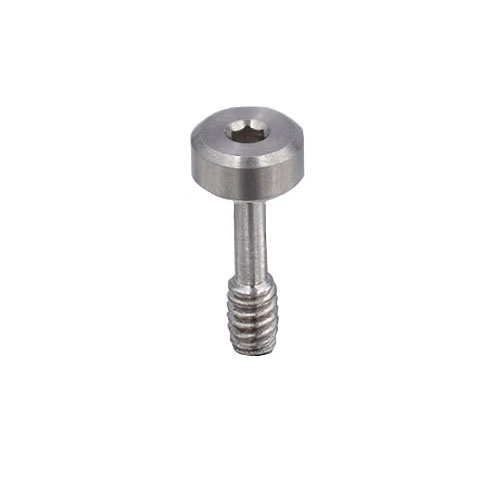Features and aspects of precision screws
2023-10-18
Precision screws, also known as precision machine screws, are specialized screws designed to provide accurate and repeatable positioning or fastening in various applications. They are manufactured to tight tolerances, ensuring precise movement, alignment, and secure fastening in machinery, equipment, and other mechanical systems.
Here are some key features and aspects of precision screws:
1. Thread Design: Precision screws typically have a fine thread pitch, meaning the threads are closely spaced. Fine threads allow for precise adjustment and controlled movement when rotating the screw. The threads can be standard metric or imperial, or they may follow specialized thread standards depending on the application.
2. High Accuracy and Tolerance: Precision screws are manufactured with strict adherence to specific dimensional tolerances, ensuring consistency and precision in their performance. The tight tolerances enable accurate positioning and controlled motion in applications such as linear actuators, CNC machines, optical instruments, and micropositioning systems.
3. Material and Coatings: Precision screws are commonly made from high-quality materials such as stainless steel, alloy steel, or hardened tool steel. These materials provide excellent strength, durability, and corrosion resistance. In some cases, precision screws may undergo additional surface treatments or coatings to enhance wear resistance, reduce friction, or improve lubrication.
4. Drive Types: Precision screws may utilize various drive types depending on the specific application requirements. Common drive types include hex socket, slotted, Phillips, Torx, or a combination of drive styles. The choice of drive type affects the ease of installation, torque transfer, and security of fastening.
5. Nut or Threaded Insert Compatibility: Precision screws often work in conjunction with compatible nuts or threaded inserts. These complementary components are designed to engage with the screw threads, providing a secure fastening or precise movement along the screw axis. The compatibility between the screw and its corresponding nut or threaded insert is crucial for optimal performance and load-carrying capacity.
6. Applications: Precision screws find applications in various industries, including robotics, medical devices, aerospace, electronics, optics, and manufacturing equipment. They are used for linear motion systems, fine adjustments, positional control, and securing critical components or assemblies that require high accuracy and stability.
When selecting precision screws, it is important to consider factors such as thread pitch, length, diameter, drive type, material compatibility, load requirements, and environmental conditions. Manufacturers and suppliers specializing in precision screws can provide guidance in selecting the most suitable screw for specific applications.
Overall, precision screws play a vital role in achieving precise positioning, controlled motion, and secure fastening in numerous industrial and technological applications that demand accuracy and reliability.



